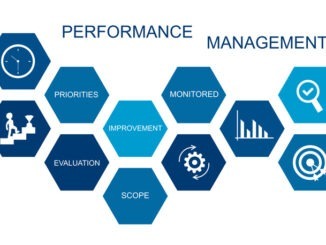
SBMs across the country are preparing for the new academic year and evaluating ways to enhance their practices and workloads. In her ongoing series, Val Andrew explores opportunities to leverage Continued Professional Development
A good place to start assessing options is through appraisal and performance management discussions. I can already hear some of you exasperating that support staff in your school are not afforded this opportunity which is disappointing as it’s such an important aspect of supporting our professional growth and whilst it’s not a mandatory requirement for support staff, it jolly well should be!
Many schools do conduct reviews for all staff and treat support staff in the same way as our teaching colleagues – which is excellent practice. Those discussions help provide feedback on performance and look at development opportunities, so can help to frame a development plan that meets individual needs alongside the needs of the school and your role within it.
Seize the Opportunity
A robust performance management strategy seeks to link an individual’s development needs with school culture, strategic direction, and policies and procedures using feedback and appraisal sessions to plan for what is appropriate and a priority. Once needs are identified and a plan established, then monitoring progress against this and ensuring there is a mechanism for evaluating impact is vital. If you are in a school where CPD for support staff is not a priority, then you may need to seize the initiative and initiate conversations with line/performance management to achieve this.
When having conversations about feedback and development it’s good to signpost some of the benefits of relevant CPD (set out in my last article). Also remember the wise words of an experienced SBM colleague (Lesley Burton) who suggests that you don’t think about these meetings as a “Line of Duty” type interrogation rather try and lead the conversation and treat it like a “Britain’s Got Talent” interview as often we adopt a defensive mindset instead of ‘selling the benefits of ourselves’!
Another tool at your disposal to establish your own professional development need is the ISBL Professional Standards, which can be found here: https://www.isbl.org.uk/isbl-professional-standards
Identifying the Right Options
Taking time to assess your own skills and competencies against the levels set out within these standards will be vital to make sure you identify the right CPD options. Linking these opportunities to the priorities set out in the school’s development/improvement plan will strengthen your case even if the impact on educational outcomes overall seems less obvious. For example, finance training to ensure you are competent in processing transactions within the finance system can eradicate errors, ultimately leading to the availability of resources for educational materials. Similarly, project management training can lead to improving the quality of the learning environment. Yes, these are examples of indirect benefits but nonetheless relevant and demonstrate clear and indisputable impact.
Being brave enough to initiate conversations about CPD can help to embed the concepts of credibility and respect for you as an effective and efficient School Business Manager amongst your school colleagues. Having a fully trained, empowered SBM can also reduce the workloads of other leadership colleagues too, so a real positive for any school.
Affordability is key in the current financial climate, and as we wait with bated breath for the Autumn Budget, schools everywhere will be looking to continue to reduce expenditure. Whilst there are a multitude of structured course options available for SBMs, there are other ways of developing skills and competencies that have lesser pecuniary implications for your school.
For example, attending your local networking group meetings bring you into contact with other practitioners where best practice and good ideas are shared in a common environment. Visiting other schools and shadowing another, more experienced SBM practitioner can be insightful and bring a fresh approach to solving problems. There are lots of SBM related podcasts available to help you understand how things might be done differently and potentially more effectively. There are also many organisations offering free to attend online workshops which relate to aspects of the SBM work. In the last few years, there has been a rise in the popularity of individual coaching/mentoring – offered by individuals and organisations alike. These can be extremely advantageous because they are tailored to your own individual needs as well as the needs of your school.
Networking Benefits
During my SBM career, one of the most beneficial aspects for me was the opportunity of networking with other like-minded professionals – people who were not always in SBM roles, but often other leadership colleagues too.
There are also benefits of virtual training events too which are often much less of a cost burden – whilst you sacrifice the opportunity for round the table discussions, and spontaneous engagement, there won’t be a queue for the toilets, you can nip and make yourself a coffee without it being too obvious, and you can check your emails with the fear of a judgemental stare! All of which clearly ensure you are concentrating of the aspects most relevant to you.
By the time I write my next article, there should be lots of new information available about what we can access this year (fingers crossed). I’ll look to identify where to find the information about what’s available, how to navigate all those confusing CPD options and ensure you choose the best route for you, and how you are able to use CPD to develop your own profile in school proactively.



Be the first to comment